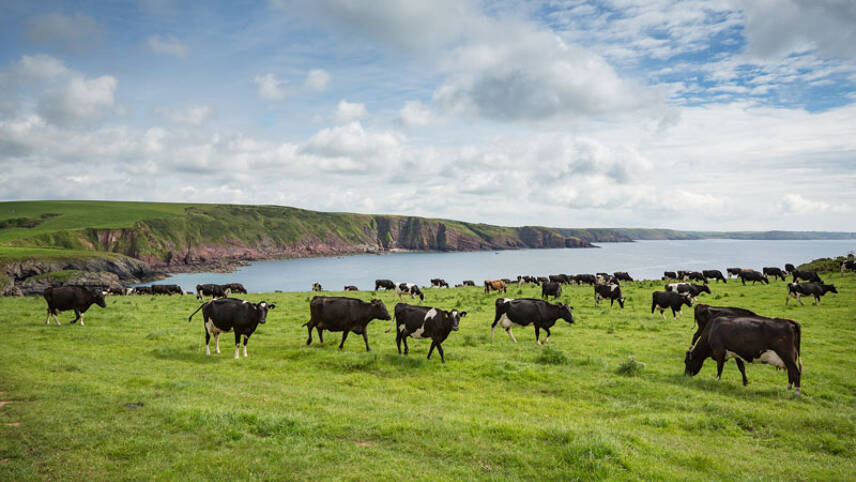Register for free and continue reading
Join our growing army of changemakers and get unlimited access to our premium content

Pictured: Cattle grazing at Barafundle bay
The Agriculture (Wales) Act provides the nations with the powers necessary to deliver a new post-Brexit payment scheme for farmers, diverging from the UK Government’s approach for England.
Rural Affairs Minister Lesley Griffiths has called the Act the most important piece of agriculture-related legislation to go through the Welsh Parliament in its 25-year history.
The Act ushers in a new Sustainable Farming Scheme which will be the main source of income support from farmers from 2025. Under the Scheme, payments will be linked not only to production levels, but to water and soil conservation and restoration; nature creation and conservation; and carbon storage.
The Basic Payment Scheme run under the EU’s Common Agricultural Policy (CAP) will continue to provide payments in full for 2023 and 2024. The CAP predates the EU’s Green Deal and any national net-zero target setting, and has long been accused of prioritizing intense production in the short-term over long-term sustainability for farms.
Beyond the changes already confirmed, the Farmers Union of Wales is advocating for more certainty that small family farms will be guaranteed a level of economic stability. The Union has called for long-term clarity and also extra crisis support, for situations such as disease outbreaks or the present fertilizer and energy price crisis.
Tree planting targets
As well as new payment schemes, the Act details additional ethical and environmental obligations for farmers. There is an outright ban on the use of snares and glue traps. There are also new rules on how landowners must protect nature during tree felling, new bans on certain kinds of felling and new Government powers to change felling licences where projects are undermining the delivery of other environmental legislation.
Additionally, farms will be subjected to a new requirement of having at least 10% tree cover. This feeds into a Welsh Government commitment to plant 86 million trees this decade. Farmers and landowners can access £32m of subsidies to help cover the costs of tree planting.
While the benefits for nature are clear, some farmers have raised concerns about the practicality of tree planting beyond costs. This concern is particularly strong among coastal farms and those with the most productive land.
Griffiths said: “There isn’t a choice between sustainable food production on our farms and tackling climate change. Both must go hand in hand as the climate emergency is a real threat to agriculture and production of food.
“The Agriculture Act takes this into account, ensuring sustainable land management is at the heart of future support safeguarding the industry.”
The Union has stated that it does not doubt the importance of environmental sustainability, but some members would like alternatives to the tree planting requirement, such as peatland restoration or soil carbon enhancement.


Please login or Register to leave a comment.